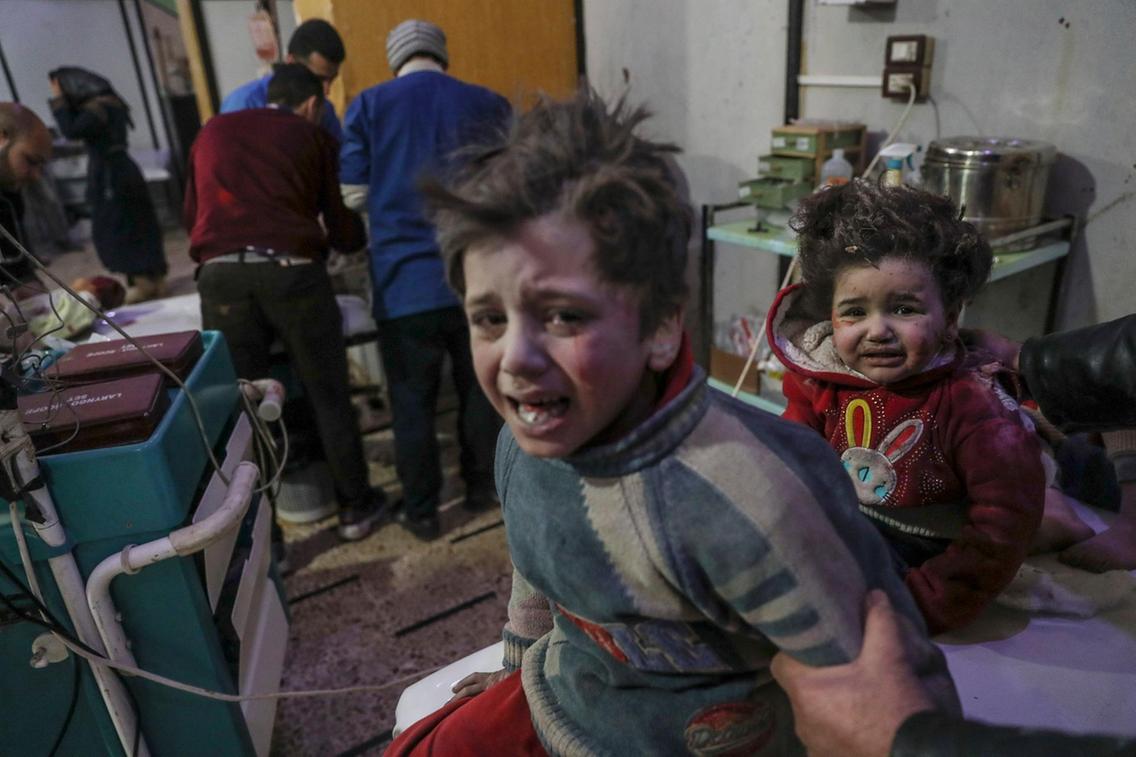Nearly a week of airstrikes that have hit 22 hospitals and clinics and led to widespread claims that civilian healthcare in the besieged area is being systematically annihilated and near collapse in eastern Ghouta, according to medics and doctors.
Aid agencies including the Red Cross and World Food Programme are calling for an urgent ceasefire to allow them to reach eastern Ghouta, where more than 1,200 people have been injured, a toll people on the ground say has been exacerbated by attacks on hospitals, clinics and ambulances.
According to the Syrian Observatory for Human Rights, a UK-based war monitor, at least 403 people have been killed and 2,116 injured in eastern Ghouta since Sunday night. On Thursday Russia blocked a ceasefire proposal at the UN security council for the area, describing the widespread reporting of heavy civilian casualties as a product of “mass psychosis”.
One Ghouta doctor, who uses the pseudonym Abu Bakr, said: “We’ve been targeted directly. It’s an ungodly situation; we weren’t prepared for this brutality. Civilians did not expect such cruelty”.
As the damage and death toll from the strikes continued to mount, international organisations that monitor the Syria crisis alleged there was clear evidence that hospitals were deliberately targeted.
Dr Ghanem Tayara, the chairman of the Union Of Medical Care And Relief Organisations, said: “Even war has rules and their actions violate countless UN resolutions. In military battles, even the dead and wounded are allowed to be cleared. Their hospitals, schools, food warehouses are destroyed and they are condemned to a slow and painful death.
“The unspeakable suffering we are witnessing was deliberately planned and meticulously implemented over time,” said Susannah Sirkin, the director of international policy at Physicians for Human Rights, an NGO.
In an effort to address the situation in Ghouta, the United Nations security council will vote on Friday on a draft resolution demanding a 30-day truce in Syria to allow aid deliveries and medical evacuations, but it was not immediately clear if the text had won the support of Syrian ally Russia.
>Juthy Saha














